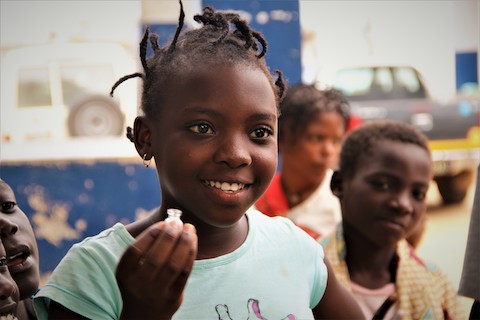 Immunization is one of the most impactful and cost-effective public health interventions available, averting over 4 million deaths every year. In addition to offering protection from preventable diseases, immunization also brings children and families into contact with health systems, providing an avenue for the delivery of other basic health services and laying the foundation for primary health care. As such, ensuring universal access to vaccines is a critical entry point for universal health coverage (UHC).
Immunization is one of the most impactful and cost-effective public health interventions available, averting over 4 million deaths every year. In addition to offering protection from preventable diseases, immunization also brings children and families into contact with health systems, providing an avenue for the delivery of other basic health services and laying the foundation for primary health care. As such, ensuring universal access to vaccines is a critical entry point for universal health coverage (UHC).
In addition to its direct impact on the health of populations, immunization brings added value by reducing the burden of disease on individuals, families and communities, including through savings on medical expenses, as well as productivity and educational gains. The return on investment for immunization has been estimated to be US $44 for every dollar invested, including broader social and economic benefits.[1]
In less than a generation, the African Region has made tremendous gains in increasing access to immunization and driving down child deaths. For example, several diseases are on the brink of eradication and elimination (e.g., polio and maternal and neonatal tetanus, respectively), while the introduction of new vaccines is stamping out age-old diseases.[2]
Despite these achievements, national and subnational immunization coverage rates have stagnated in many countries, and the African Region still lags behind other regions of the world in access to vaccines. Approximately 1 in 5 African children do not receive all the necessary and basic vaccines. As a result, more than 30 million children under five still suffer from vaccine-preventable diseases (VPDs) every year in Africa. Of these, over half a million children die from VPDs annually – representing approximately 58% of global VPD-related deaths.[3]
Strategic investments to strengthen health systems are critical to support robust immunization programmes that can deliver vaccines to everyone in Africa, including the most vulnerable. Expanding access to vaccines for is vital to improve child health and survival, as well as to lay the foundation for countries to reach every person with the basic health services they need to survive and thrive.
1. Ozawa S et al; Return On Investment From Childhood Immunization In Low- And Middle-Income Countries, 2011–20, HEALTH AFFAIRS 35, NO. 2 (2016): 199–207
2. Shah MP, Tate JE, Mwenda JM, Steele AD, Parashar UD. Estimated reductions in hospitalizations and deaths from childhood diarrhea following implementation of rotavirus vaccination in Africa. Expert Rev Vaccines 2017; 16:987–95. Troeger S. et al., Rotavirus Vaccination and the Global Burden of Rotavirus Diarrhea Among Children Younger Than 5 Years. JAMA Pediatr. 2018 Oct; 172(10): 958–965.
3. Business case for WHO immunization activities on the African continent, 2018–2030. Brazzaville: World Health Organization; 2018.



